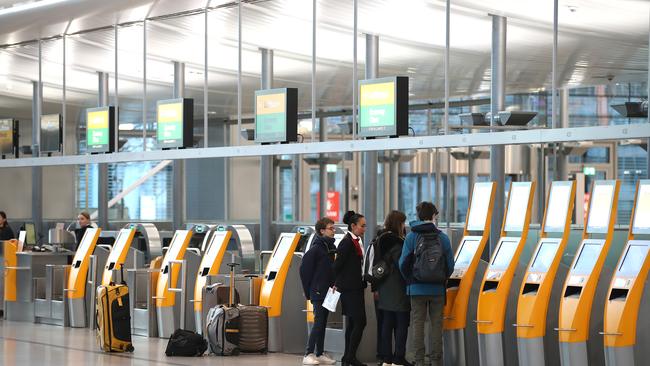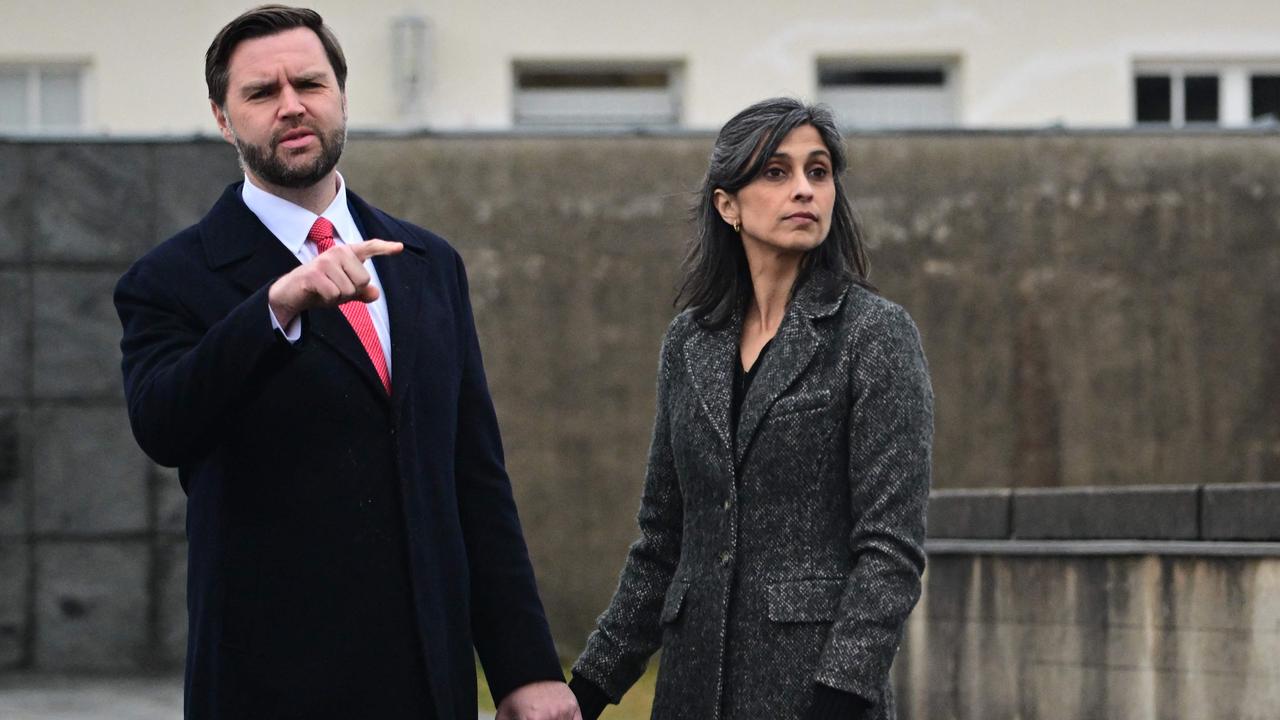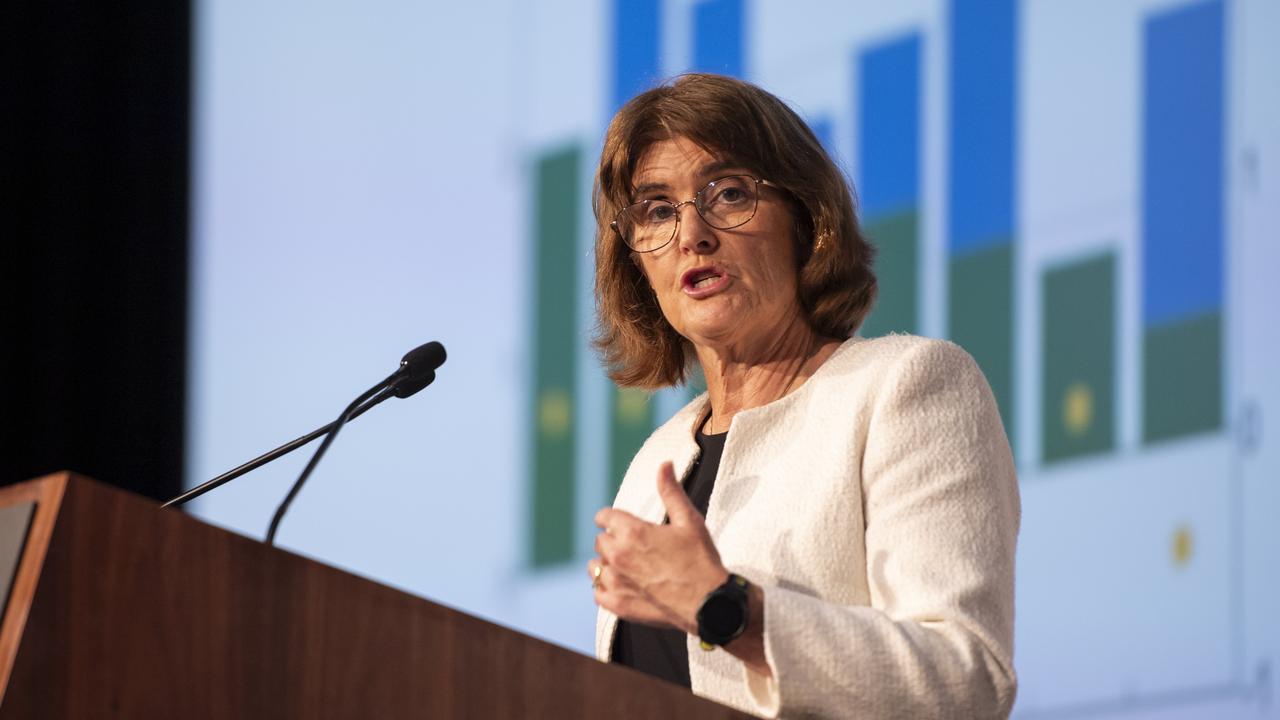Airlines nosedive as flights restricted
Airlines around the globe are fighting for survival as they confront a dizzying array of limits on air travel.

Airlines around the globe are fighting for survival as they confront a dizzying array of limits on air travel.
In just a week, what started as a nascent crisis has snowballed as worries about the spreading novel coronavirus prompted countries including the US to restrict travel.
Those limitations, along with customer anxiety about contracting the virus while flying, have caused airlines to cut the number of flights by up to 70 per cent, prepare for a worst-case scenario and cut back employees.
New restrictions on travel to the US from Britain and Ireland could remove the equivalent of another million aircraft seats from the market over the next 30 days, on top of the two million affected by the ban on flights from continental Europe, according to analysts at Cirium.
US President Donald Trump said officials were considering restrictions on travel within the US. Asked whether Americans should avoid domestic travel, Mr Trump said: “If you don’t have to travel, I wouldn’t do it.”
As last week started airlines announced what seemed like draconian cuts to costs and flying capacity, but by the end of the week said those measures were insufficient. With financial outlooks rapidly deteriorating, airlines on both sides of the Atlantic are being forced to take more drastic action to slash costs.
Major US airlines are in talks with the government about financial support, and one possibility being discussed is government-backed loans.
US Treasury Secretary Steven Mnuchin has said he is particularly interested in assistance for the airline industry because of the importance of maintaining a domestic travel network. Such aid could be delivered by deferring tax payments or through loan guarantees.
“The airlines industry in particular, no different than after 9/11, has a very unique circumstance,” Mr Mnuchin.
American tourists have rushed to airports in Copenhagen, Paris, and Barcelona, trying to get home after new travel restrictions were announced.
Airlines don’t have the manpower to handle the volume of calls they are getting from anxious customers trying to rebook or cancel trips. They have asked people not to call in to change flights unless they have scheduled travel within 72 hours. Some customers have said they spent hours on hold waiting for assistance.
“There’s unprecedented call volume, possibly highest we’ve ever seen,” said a spokesman for American Airlines.
Carriers say the situation is dire. British Airways on Friday sent a memo to staff titled “The survival of British Airways”, outlining plans to ground aircraft and lay off employees.
Norwegian Air Shuttle said the Norwegian government’s cut to aviation taxes was “not enough”. The ailing carrier has already outlined plans for unpaid leave for as many as half of its employees.
Lufthansa is scrambling to raise more cash, including by selling planes, after raising €600m ($1.1bn) in recent weeks. The group said bookings were down 50 per cent and it was in the process of reducing its flights by up to 70 per cent from the pre-coronavirus schedule.
In an example of how abruptly the situation can change, British budget airline Jet2 said it would suspend flying to Spain in response to local measures that closed bars, shops, and restaurants to stem the spread of the virus. As many as seven Jet2 flights bound for Spain were turned around midflight on the weekend.
Other countries are also clamping down on travel. Locally, Qantas and Virgin Australia both upgraded their coronavirus responses last week, cutting more flights and capacity, urging staff to take leave without pay, scrapping bonuses and calling for suppliers to reduce prices.
Qantas increased its capacity reductions across the airline’s international network from 5 to 23 per cent, in a move that would ground the equivalent of 38 aircraft and make 2000 staff “surplus to requirements”. CEO Alan Joyce announced only two of the airline’s 12 A380s would remain in service after June 1, and said the Sydney-Singapore-London route would fly via Perth from April 20. He put his own salary on hold until the end of the financial year, and sliced executives’ pay by 30 per cent. Mr Joyce also appealed to airports and IT and logistics suppliers to reduce fees for Qantas until conditions returned to normal.
With less exposure to international markets, Virgin Australia’s cuts were not as drastic but the airline still reduced new flights to Tokyo from daily to three times a week, and the daily Sydney-LA service to five times a week.
A substantial reduction in trans-Tasman flights was flagged from March 22, and CEO Paul Scurrah said Virgin was targeting a reduction in crew accommodation costs and cutting marketing budgets. Like his Qantas rival, he appealed for government relief in the areas of fuel excise, Airservices’ charges and airport costs.
Elsewhere, Poland and Kuwait are shutting their borders to international arrivals. India has imposed restrictions on new tourist visas. Travel restrictions are also in place by Ukraine, Russia, Turkey, Taiwan, Denmark and the Czech Republic.
In the US, with cancellations outpacing bookings, Delta Air Lines said it would slash capacity by 40 per cent and cancel nearly all flights to continental Europe. “The speed of the demand falloff is unlike anything we’ve seen,” CEO Ed Bastian wrote to employees.
When airline CEOs met with the US President and Vice-President earlier this month, the situation looked more manageable. “In Washington, D.C. last week, not one CEO asked for government financial relief,” American Airlines CEO Doug Parker said.
US airline executives said they had adequate cash options to weather a steep, prolonged downturn, citing aircraft and other assets such as route rights and airport slots that could be pledged against fresh loans. But they need to keep cash coming in to pay staff and vendors, and carriers are pulling more levers to boost liquidity drained by mass cancellations.
“Airlines are in cash-preservation mode,” Cowen & Co analyst Helane Becker said.
Alaska Air, for instance, said it had borrowed $US388m ($630m).
The Wall Street Journal
Additional reporting: Robyn Ironside


